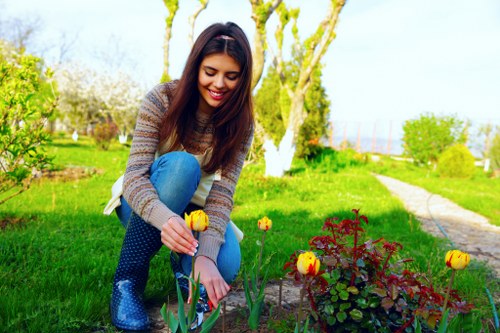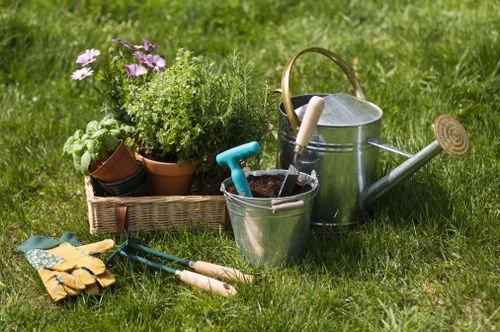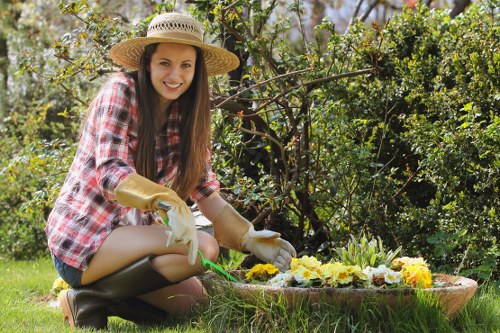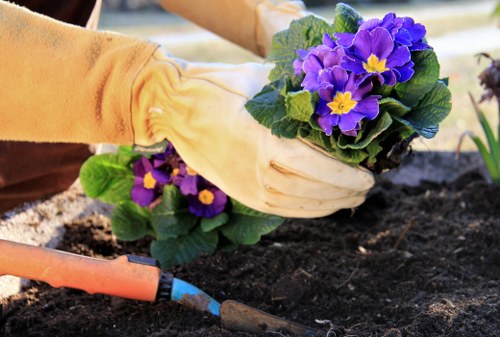Transform Your Outdoor Space: Landscape Gardening in Norbiton

Norbiton, a charming suburb nestled in the heart of Kingston upon Thames, is renowned for its picturesque landscapes and vibrant community. If you're a resident looking to enhance the beauty and functionality of your outdoor space, landscape gardening is the perfect solution. With the right design and execution, your garden can become a sanctuary for relaxation, entertainment, and connection with nature.
Landscape gardening goes beyond mere plant selection; it's about creating a harmonious environment that complements your lifestyle and the natural surroundings of Norbiton. Whether you have a sprawling backyard or a cozy patio, thoughtful landscaping can significantly increase the aesthetic appeal and value of your property.
In this article, we'll explore the key elements of landscape gardening in Norbiton, offering practical tips and ideas to help you create a stunning outdoor space that reflects your personal style and meets your gardening needs.

Understanding the Climate and Soil of Norbiton
Norbiton enjoys a temperate climate, characterized by mild winters and warm summers. This climate is conducive to a wide variety of plants, making it an ideal location for diverse landscaping projects. However, understanding the specific climatic conditions and soil composition of your garden is crucial for successful landscape gardening.
The soil in Norbiton varies from clay to sandy loam, each with its own drainage and nutrient characteristics. Conducting a soil test can provide valuable insights into the pH levels and nutrient content, allowing you to amend the soil appropriately for optimal plant growth.
By tailoring your plant selections and gardening practices to the local climate and soil conditions, you can ensure a thriving and sustainable garden that withstands the test of time.

Key Elements of Landscape Gardening
1. Plant Selection
Choosing the right plants is fundamental to any successful landscape garden. In Norbiton, you have access to a wide range of native and exotic plants that can thrive in the local environment. Consider factors such as sunlight, soil type, and water requirements when selecting plants to ensure they complement each other and the overall garden design.
- Perennials: These plants return year after year, providing consistent color and structure.
- Annuals: Ideal for adding seasonal vibrancy, annuals can be changed to suit different themes throughout the year.
- Shrubs and Trees: These provide structure, shade, and can serve as focal points in your garden.
2. Hardscaping Features
Hardscaping involves the use of non-plant elements to enhance the functionality and aesthetic appeal of your garden. Common hardscaping features include:
- Patios and Decks: Perfect for outdoor entertaining and relaxation.
- Paths and Walkways: Guide visitors through your garden, adding structure and beauty.
- Fencing and Walls: Provide privacy and define garden boundaries.

Designing Your Landscape Garden
Creating a Focal Point
A focal point is a standout feature that draws the eye and serves as the centerpiece of your garden. It could be a stunning tree, a water feature, a sculpture, or a beautifully designed patio. In Norbiton, where natural beauty is abundant, integrating a focal point that complements the surrounding environment can elevate the overall design.
Balancing Open Spaces and Planting Areas
Effective landscape gardening strikes a balance between open spaces and planting areas. Open spaces provide room for movement and activities, while planting areas add color, texture, and life to the garden. Consider the flow of your garden and how you want to use different sections to achieve harmony and functionality.
Incorporating Sustainable Practices
Embracing sustainability in your landscape garden not only benefits the environment but also enhances the long-term health of your garden. Some sustainable gardening practices include:
- Rainwater harvesting: Collecting rainwater for irrigation reduces water waste.
- Composting: Recycling organic waste enriches the soil naturally.
- Using native plants: Native flora typically require less maintenance and are more resilient.

Seasonal Considerations for Norbiton Gardens
Spring
Spring is an ideal time to plant new flowers and shrubs, as the moderate temperatures and increased rainfall support vigorous growth. Consider planting bulbs for vibrant spring blooms and preparing your garden beds for the warmer months ahead.
Summer
During summer, focus on maintaining your garden by regular watering, weeding, and pruning. Incorporate shade-loving plants and install features like pergolas or shade sails to keep your outdoor spaces comfortable.
Autumn
Autumn is perfect for planting trees and perennials that will establish their roots before the winter. It's also a time to clean up fallen leaves and mulch your garden beds to protect plants from frost.
Winter
Winter may seem like a dormant period, but it's an excellent time for planning and maintenance. Prune hardy plants, protect sensitive species from frost, and plan next year's garden layout.

Choosing the Right Landscape Garden Services in Norbiton
Embarking on a landscape gardening project can be overwhelming, especially if you're new to gardening. Hiring professional landscape gardeners in Norbiton can ensure that your garden is designed and maintained to the highest standards. When selecting a service, consider the following:
- Experience and Expertise: Look for gardeners with a proven track record and expertise in designing landscapes suitable for Norbiton's climate and soil.
- Portfolio: Reviewing their previous work can give you an idea of their style and capabilities.
- Client Reviews: Testimonials and reviews can provide insights into their reliability and quality of service.
Investing in professional landscape gardening services can save you time and effort, ensuring your garden thrives year after year.
Ready to transform your outdoor space? Contact us today to book your landscape gardening service and create the garden of your dreams in Norbiton!
